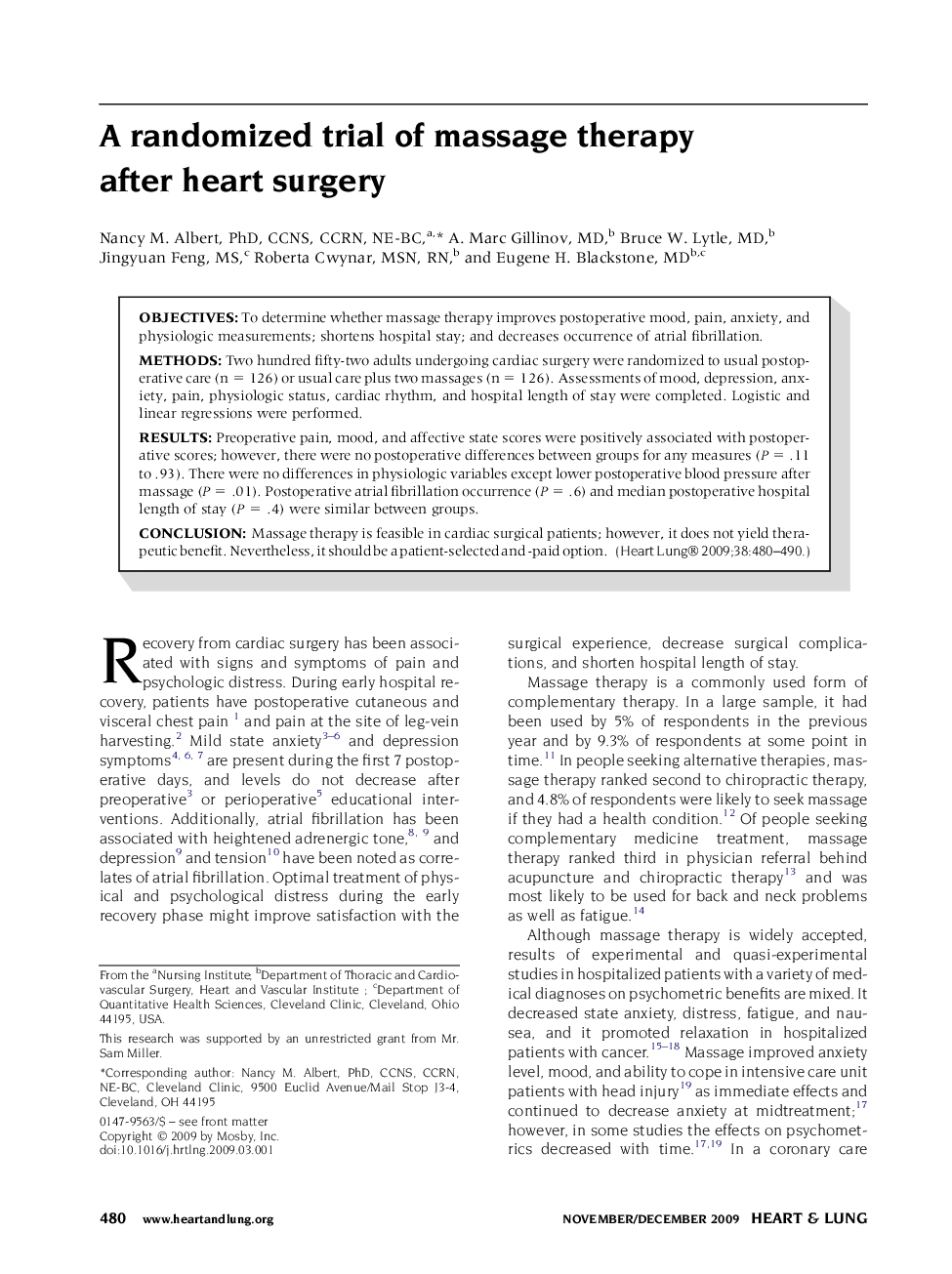| Article ID | Journal | Published Year | Pages | File Type |
|---|---|---|---|---|
| 2651657 | Heart & Lung: The Journal of Acute and Critical Care | 2009 | 11 Pages |
ObjectivesTo determine whether massage therapy improves postoperative mood, pain, anxiety, and physiologic measurements; shortens hospital stay; and decreases occurrence of atrial fibrillation.MethodsTwo hundred fifty-two adults undergoing cardiac surgery were randomized to usual postoperative care (n = 126) or usual care plus two massages (n = 126). Assessments of mood, depression, anxiety, pain, physiologic status, cardiac rhythm, and hospital length of stay were completed. Logistic and linear regressions were performed.ResultsPreoperative pain, mood, and affective state scores were positively associated with postoperative scores; however, there were no postoperative differences between groups for any measures (P = .11 to .93). There were no differences in physiologic variables except lower postoperative blood pressure after massage (P = .01). Postoperative atrial fibrillation occurrence (P = .6) and median postoperative hospital length of stay (P = .4) were similar between groups.ConclusionMassage therapy is feasible in cardiac surgical patients; however, it does not yield therapeutic benefit. Nevertheless, it should be a patient-selected and -paid option.
